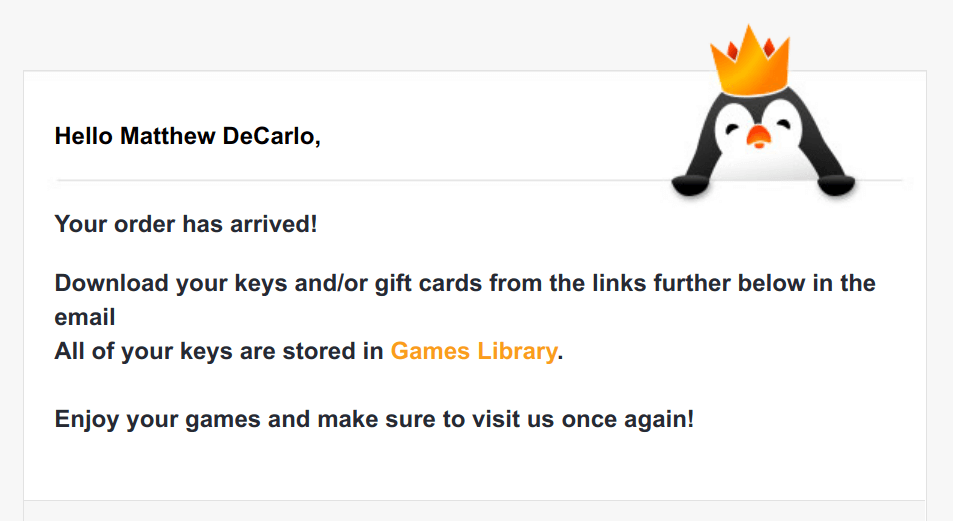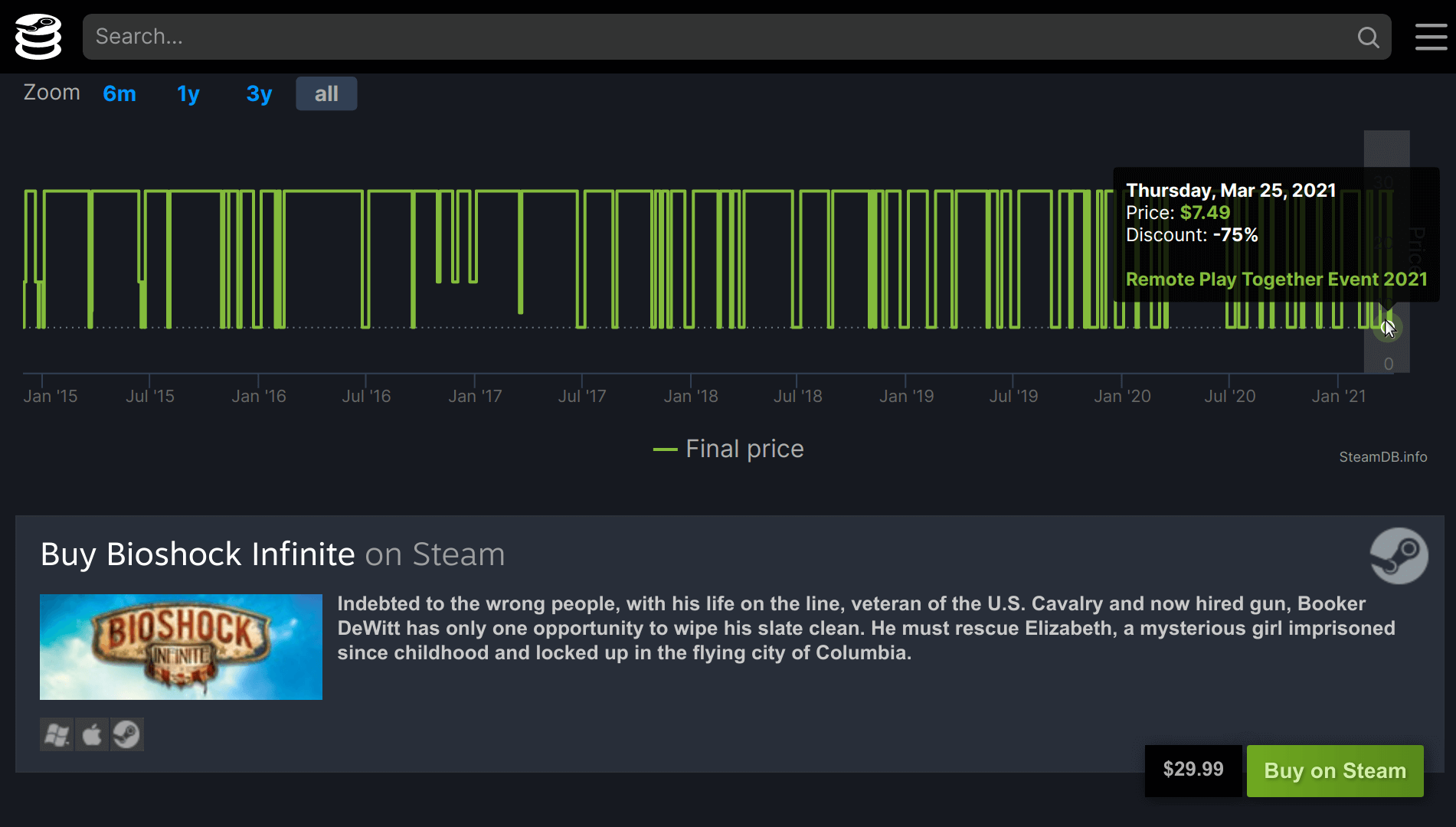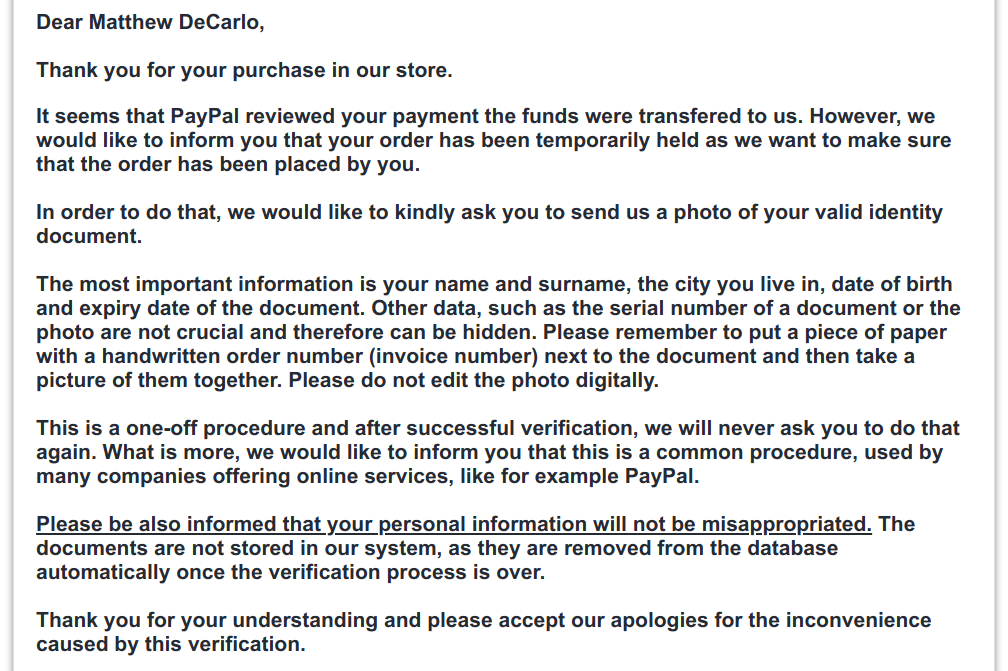So you're going to buy a game from one of those no-good-gray-market key sites like G2A, are you? Well, we have your IP address and we're already on the phone with Interpol. Just kidding. The reason you're really here is because you want to know if gray market key sites are legit.
Here's the short answer: Yes, in the sense that you get a key for less than full price, but no in the sense that they are not supported by game developers – and gray market sites may not support game developers either.
Legit in the sense that you get a key
Sites like G2A are legitimate in the sense that you will pay less for games and receive a working key that you can use on services like Steam. Most of these sites have some kind of shopping protection where you will be refunded if you don't get a key, though this protection tends to cost an extra dollar or two during the checkout process.
While "legit," buying games through sites like G2A, Kinguin or CDKeys can be less convenient than official stores. Because of how prevalent stolen keys have been on gray market sites, some of them require you confirm your identity before you can place an order. And in my experience, sometimes their payment processors decline a purchase for no apparent reason.

However, I've always received a key after paying. Maybe I had to wait a few hours or I had to click through more menus than I would have preferred to get that key, but the key has always arrived - and almost always for a greatly discounted price. That's pretty legit if you ask me.
The perspective of developers
Ask certain developers and they'll tell you to just pirate the game instead of supporting sites like G2A.
In the latest episode of Fuck G2A:
--- Mike Rose (@RaveofRavendale) June 29, 2019
G2A has taken out sponsored ads on Google, which mean that when you search for our games, you get G2A popping up above our own links --- and we make zero money on our games if people buy through the ads.
And when you try to turn their ads off... pic.twitter.com/hSiIkaOLle
Game keys sold on gray market key sites can sometimes be from a stolen or hacked source. Worse than that, people frequently purchase games from sites like G2A with stolen credit cards and the resulting chargeback might ultimately cost the developer money. Not to mention the potential for problematic sales to increase support costs for a game dev - a real hassle for small operations.
As explained in a 2016 blog post by Lars Doucet of Level Up Labs, the dev behind Defender's Quest:
"I never thought the day would come where I would passionately argue that fans should pirate my game rather than pay for it, but here we are...
...When you buy a key on G2A, a lot of the time you're buying a Steam Key somebody bought with a stolen credit card. When the cardholder inevitably finds out, they issue a chargeback and the credit card company refunds them, taking the money from the store (plus a fee), and giving it to the fraud victim. This means the store (or developer if they're selling direct) made negative money on the sale of that key, as TinyBuild and IndieGameStand have detailed. However, the thief still got paid. And so did G2A. So they do it again. And Again."
The perspective of players
People who buy discounted games from gray market sites are often unwilling (or unable) to buy the game for full price. And who could blame them? High budget games have trended toward being half-developed bloatware with microtransactions that you pay full price to beta test.
At the very least, most AAA titles have some form of in-game, after-sale monetization scheme for you to buy additional content. And if you know that you'll likely be coming out of pocket again for the same game, it makes sense that you'd want to pay as little as possible for the base install.
Also, it's not sites like gray market sites have set the expectation for super cheap games - that's more the result of Steam sales, Humble Bundles, and so on. Plus, the keys that merchants sell on gray market sites are sometimes from those sales, which is perhaps why some old games on gray market sites sometimes stay at around those Steam discounted prices.
It may be interesting to note that much of the reasoning behind using gray market key sites is similar to old argument for pirating games – mainly that people would not buy the game or buy the game at full price anyway. The advent of game torrents and now sites like G2A are more the result of a decades-long transition toward digital content distribution than anything else, and the burden of that transition belongs more on people developing games than people buying them.
Buying game keys through gray market sites is safer than pirating a game because you receive an official download and not one that might be infected or handicapped in some way. You'll also get official updates, and at least you are playing through an official channel so others on that platform are more likely to buy the game - perhaps even at full price. One of the incentives for developers to participate in Steam sales is that the influx in new customers often continues after the discount ends because of purchases from Steam friends, etc.
Getting games for the best price possible
Generally speaking, the newer and more popular a game is, the less of a discount you can expect to find on gray market sites. You'll usually only save a few bucks on big new releases such as Hitman 3, which is currently available for $44.99 through Epic Games and $37.80 for the best price we can find on a gray market key site.
Games that have been around for a while (6 months to 1 year, or more) tend to be available for more of a discount on gray market sites. For instance, Cyberpunk 2077 is currently $47.99 through Steam and can be had for around $25 through various gray market sites.
However, older games that have been on sale many times cost significantly less through gray market sites. A few examples: BioShock Infinite is $29.99 on Steam, and around $4 on the gray market. Metal Gear Solid V: The Phantom Pain is $19.99 on Steam versus $2.50 on gray market sites. Dying Light and Skyrim are $39.99 versus around $6.

Those gray market listings are generally lower than the best prices ever on Steam, according to the records on SteamDB.info, with the only exception of Skyrim which has previously been on sale for $5.
MGS V has been as low as $5 during big sales, but that's still double the current gray market price, while Dying Light has only been as low as $13.59, and BioShock Infinite dropped to $7.49 during Steam's epic sales.

Such huge savings are a no-brainer if you're low on cash. For older games, you can often buy the base install with all of the DLC through a gray market site for considerably less than just the base game from an official store. You don't have to monitor sites like IsThereAnyDeal.com waiting for a huge discount, and you'll often pay less on gray market sites even when there is a great sale.
To buy or not to buy, that is the question
Will you get the game key that you buy from a gray market site? Almost surely - and you'll probably pay a lot less if that game isn't currently on sale through official stores. Are you supporting developers less by ordering from sites like G2A? Sometimes.
But if the key you purchased was originally bought by someone through an official channel and resold on a gray market site, then the developer got their cut on that initial sale.
Like Lars Doucet said, "to be extremely crystal clear, I am not really bothered by 3rd-party key resellers who do not traffic in stolen goods. If they're just exploiting arbitrage, I got paid for that first sale and a key can only be redeemed once, anyway, so I don't really care. But I do care about fraud, theft, and chargebacks."
The real problem is when stolen or fraudulently purchased keys are sold through gray market sites, though G2A has stated in the past that "only one percent of transactions are problematic" and gray market sites have taken steps to help eliminate shady keys.

Is a game developer going to tank because you ordered from a gray market key site? Would you have paid them the full price anyway? While they may not be perfect, gray market sites provide a more affordable option if you can't spare the asking price for a game on Steam or other digital storefronts.
Masthead credit: Gorodenkoff via Shutterstock
